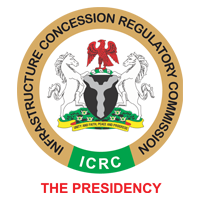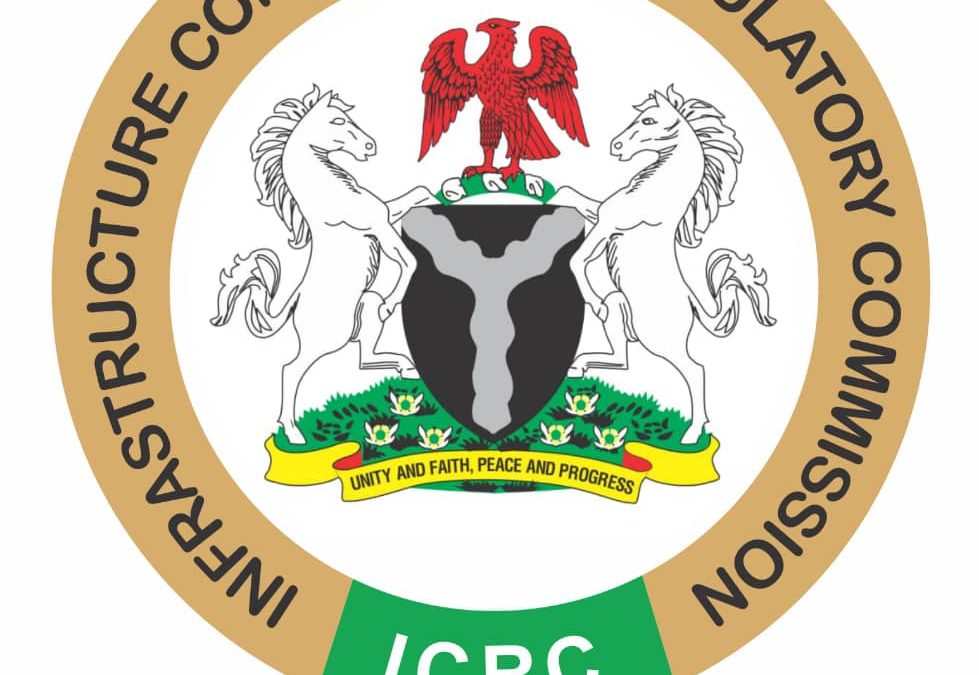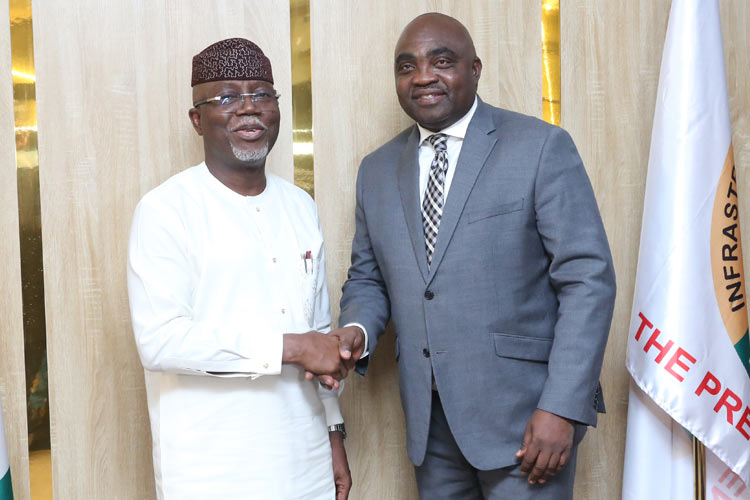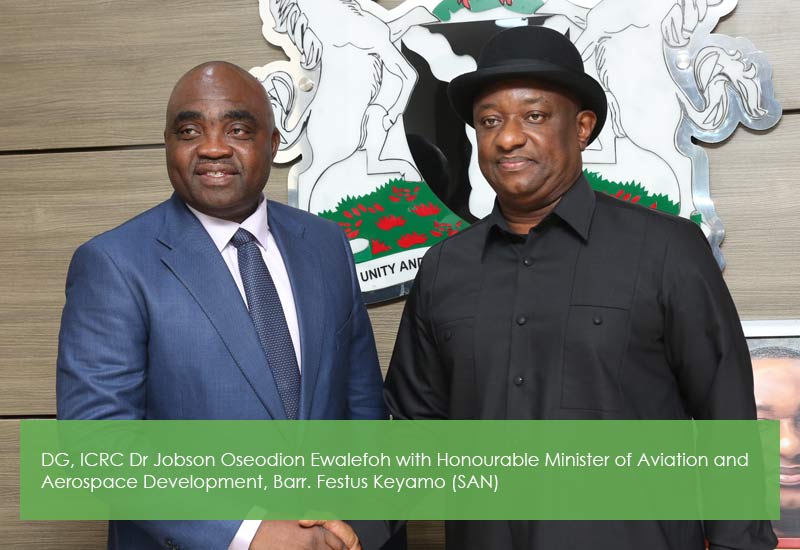‘PPP is a dependable vehicle for accelerating infrastructure development’
In one week, the federal government has launched the Nigeria Integrated Infrastructure Master Plan (NIIMP) and organised a summit on infrastructure financing hosted by the Infrastructure Concession Regulatory Commission (ICRC), in collaboration with the Africa Public-Private Partnership Network (AP3N). These two events and the submissions made have shown the level of importance that government now attaches to infrastructure provision in the country through public-private partnerships. Assistant Editor NDUKA CHIEJINA reports.
Having dawned on it that its budgetary allocations to infrastructure are often grossly insufficient, the federal government has ramped up efforts to involve the private sector in the provision of infrastructure. It is so important to the government that in 2014, a National Integrated Infrastructure Master Plan (NIIMP) was developed to midwife an infrastructure revolution.
The Master Plan covers core and non-core infrastructure, vis-a-vis: Energy; Transportation; ICT; Agriculture, Water Resources and Mining; Housing & Regional Development; Social Infrastructure; and Vital Registration and Security. The Master Plan provides an integrated view of infrastructure development in Nigeria, with clear linkages across the key sectors. US$150 billion will be required yearly for the NIIMP implementation between 2020 and 2030, showing clearly that the federal government alone cannot provide all the needed resources, more so as government revenue from the oil and gas sector is vulnerable to shocks in the international markets.
NIIMP identifies priority project portfolios for all asset classes. For example, under energy, there are: generation capacity; expansion of transmission infrastructure; construction of supporting gas infrastructure; refining capacity. Under transportation portfolio, there are: investments in roads sub-sector especially, refurbishment of cross-national highways and expansion of regional road networks and linkages to other modes of transportation; rehabilitation of major rail links, renovation and upgrading of main airports and aviation facilities and systems; inland waterways; urban transportation in major cities. For information, communication and technology (ICT), there will be consideration for expansion of mobile network capacity and broadband fibre optic network.
The Nigeria Public-Private Partnership Network (NPPPN) was established in 2011 through collaboration between the Infrastructure Concession Regulatory Commission (ICRC), Lagos State Public Private Partnership (PPP) office, and the Nigerian Infrastructure Advisory Facility (NIAF) to create a platform for all states (sub-nationals) Heads of PPP units nationwide under the chairmanship of the Nigeria Governors’ Forum. ICRC acts as the secretariat. The Public Private Partnership Units Consultative Forum (3PUCF) was also established in 2013 as a forum designed to provide a platform for Heads of PPP Units in Federal MDAs for knowledge and experience sharing; ensuring symmetry of effort towards institutionalizing FGN PPP programme, provision of training and educational intervention among others, and meets quarterly,’ under the Chairmanship of the Office of the Head of the Civil Service of the Federation. ICRC also acts as the Secretariat
Recently in Abuja, the Secretary to the Government of the Federation (SGF), Mr. Boss Mustapha, said: “The public-private partnerships (PPP) have become a very viable procurement option as well as a reliable and dependable vehicle for accelerating infrastructure development and structural transformation in many economies across the globe.”
While listing the advantages of PPPs over traditional procurement methods, he said: “Are quite profound and well documented. Suffice to say, however, that PPPs are well known for mobilising additional sources of funding and financing for infrastructure. PPPs also help to improve project selection, subjecting assumptions to the market test of attracting private finance.
“Indeed, countries with relatively long PPP histories have found PPPs very useful for managing construction, with adequate maintenance of assets, better than traditional procurement, with projects coming in on time and on a budget more often. The roles of government and the private sector in economic activity and management have become clearer and more inevitable.”
Mustapha was also of the opinion that to be able to stimulate and create a vibrant private sector that will accelerate infrastructure development, a number of issues must be addressed. “There is definitely the need to create a welcoming investment climate. This can be achieved by reducing risks and costs of doing business and by securing private property rights, improving governance, fighting corruption, simplifying regulations, and promoting competition.”
The SGF believes that the government “must also resist pressure to erect trade barriers for intra-African trade to flourish. Currently, intra-African trade amongst African states is about 10 per cent of total exports. This is the lowest amongst other regions in the world.”
Mustapha advocated for “financial sector development by strengthening regulatory and institutional frameworks to improve governance and increase competition, improving access to finance and financial literacy, developing payment systems, and enhancing creditor rights. Similarly, access to finance by the private sector is equally very key.”
The Minister (state) for Budget and National Planning, Prince Clem Agba, stated that President Muhammadu Buhari, in his resolve “to bridge the nation’s infrastructure gap in the wake of the Covid-19 pandemic, floated a N15 trillion Infrastructure Corporation and also signed Executive Order 7, which has informed a policy framework and created enough space for Public Private Partnership (PPP) in infrastructure development.”
In addition, some key infrastructure projects such as the Lagos-Ibadan Express Road, Abuja-Kaduna-Zaria Express Road and the Second Niger Bridge Project were funded through the Presidential Infrastructure Development Fund, which incorporates private participation in the funding and construction of some critical projects. Other noticeable achievements in the road sector include the construction and upgrading of about 5,000 km of major road projects across the country through the Sukuk bond. In the energy sector, the power generation capacity increased from an average of 5,500MW in 2014 to about 13,000MW by 2020. Notwithstanding, a lot of investment is still required in the area of transmission and distribution, which is currently being attended to by the government.
However, despite some noticeable efforts and progress, including allocation of at least 30 per cent of the federal annual budget to infrastructure projects since 2016, the federal government still acknowledges that substantial infrastructure deficits remain across the country. Driving the PPP process at the federal level is the ICRC, which was established in 2008 to superintend and regulate Public-Private Partnership (PPP) endeavours of the federal government of Nigeria aimed at addressing Nigeria’s physical infrastructure deficit which hampers economic development.
So far, ICRC has published a pipeline of 51 eligible and bankable PPP projects, worth over US$17 billion. This list contains the projects from different economic sectors, which have been granted the Outline Business Case Compliance Certificates. However, identified bidders are yet to show interest in these projects. The Director General of the ICRC, Barrister Michael Ohiani, stated that “for 2022, the ICRC intends to gazette a pipeline of 53 eligible and bankable PPP projects, worth about US$22 billion, very soon.”
As at May 2022, there are 77 post-contract PPP projects under implementation at the ICRC Projects Disclosure Portal (www.ppp.icrc.gov.ng or www.icrc.gov.ng). The portal is considered to be the first disclosure portal in the world, established in collaboration with the World Bank. There are also 197 pre-contract projects at different phases of project Development and Procurement at the ICRC website (www.icrc.gov.ng
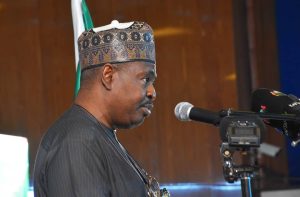
Director General of ICRC, Michael Ohiani
ICRC was established to regulate Public Private Partnership (PPP) endeavours of the Federal government aimed at …
. Between 2010 and 2021, under the regulatory guidance of the ICRC, the Nigerian Government has approved PPP projects worth more than US$9 billion.
ICRC has issued 128 Outline Business Case Compliance Certificates to date. These are certified bankable projects to enable them proceed to the procurement phase and have also issued 50 Full Business Case Compliance Certificates to date. These are projects to be submitted to the Federal Executive Council (Cabinet) preparatory to their Commercial and Financial Closures.
The ICRC boss noted that “with fiscal and budgetary funding constraints plaguing the governments, the cold reality is that private participation in infrastructure is an economic necessity, rather than an optional financing solution, as hitherto considered.” The partnership between the public and private sectors for the financing, design, build, maintenance of infrastructure and delivery of associated services, he said, “is absolutely necessary for governments to meet the need for modern and efficient infrastructure, and for reliable cost-effective delivery of public services.”
Governments all over the world, including the African continent, he noted, have come to recognise that “the collaboration between public and private sectors is crucial to securing dependable and sustainable funding for infrastructure and reducing the pressure on fiscal budgets. PPP arrangements have engendered acceleration of infrastructure provision, faster implementation of projects, and reduced whole life costs of projects.”
The ICRC boss stated that “appropriate frameworks for PPPs are already in place and activated in Nigeria, and these are expected to contribute to addressing the infrastructure deficit and operational constraints.” Financing infrastructure through PPP, he argued, “offers all of us the unique opportunity to have the details, the direction, the options, and focus on infrastructure financing, and to share our thoughts, knowledge, and experiences on its key areas with a view to having a better understanding of infrastructure financing and administration to boost the Nigerian economy.
The Director General of the Nigerian Governors’ Forum (NGF), Mr. Asishana Okauru, in his submission, said “the provision of economic infrastructure can expand the productive capacity of the economy by increasing the quantity and quality of such infrastructure, thereby accelerating the rate of economic growth and enhancing the pace of socio-economic development.” The Public Private Partnerships, he said, have shown that “if properly structured, would be an effective infrastructure financing and delivery tool.”
According to him, the Nigeria Governors’ Forum, in collaboration with the ICRC, has established the Nigeria Public Private Partnership Network to address the issues and bottlenecks towards Infrastructural development of strategic sectors of the subnational economy by public private partnerships. “Experience worldwide has shown that a well-prepared PPP project delivers greater efficiencies, value for money, improved service delivery and new job opportunities. PPPs also enable the governments (national and subnational) to apply its scarce resources to other critical areas,” he said.
Proffering solutions to infrastructure provision, Okauru stated that “the NGF believes that improving the capacity and resources of state governments to prepare PPP pipelines and bankable PPP projects offers a sustainable long-term approach to improving social infrastructure, enhancing the value of public sector assets, and making better use of taxpayers’ money.” Nigeria, he noted, “cannot generate the expected growth in all sectors without commensurate or proportional increase in infrastructure stock of the nation. Our citizens desire good medical treatment, good road network, constant power supply, conducive learning environment, safe and secured society, as well as sufficient food production and manufacturing.”
Source: The Nation
